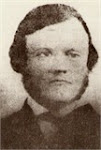I recently finished reading and highly recommend Every Man Dies Alone by Hans Fallada. Fallada's this novel detailing resistance by a very ordinary couple to Nazi power. Written in 1947, the book was only recently translated into English.
Fallada was a troubled, but moderately successful German novelist who chose to stay in Germany when many others left, a decision led him to an ambiguous dance with Nazi authorities. In the National's review by Sam Munson - Unlucky Hans - Fallada is described as "vacillating unhappily between rebellion against and co-operation with Hitler's regime."
Fallada's was inspired (if that is the right word) by the true story of Otto and Elise Hampel, who scattered postcards advocating civil disobedience throughout war-time Nazi-controlled Berlin. The story takes the reader inside the the lives of ordinary Germans living under the Nazi regime - and much of it is not pretty: Pervasive fear, exploitation of the weakness of others, informing - not to mention brutal beatings, sadistic torture, and execution by guillotine for those swept up in the regime's system of control.
Comparing Every Man Dies Alone favorably to Thomas Mann's Doktor Faustus, Munson concludes that "The book's treatment of the Gestapo is perhaps the ultimate source of its particular greatness...the dismal everyday that Fallada chronicles so well and so relentlessly: the quantities of booze drunk by the miserable officers, the number of blows delivered in interrogations, the dimensions of prison cells, the colour and details of police and military uniforms, train schedules, back room low-level party meetings. Where Mann might use the police headquarters on the Prinz Albrecht Strasse as a chance to explain the dialectic between modern and medieval German architecture, Fallada sees only petty human evil in action..."
You can borrow this excellent book from your local library with a short wait at most (there are currently 8 holds for the 111 copies held in the SCLS system). http://www.linkcat.info/cgi-bin/koha/opac-detail.pl?biblionumber=793764
Sunday, December 04, 2011
Subscribe to:
Post Comments (Atom)



















No comments:
Post a Comment